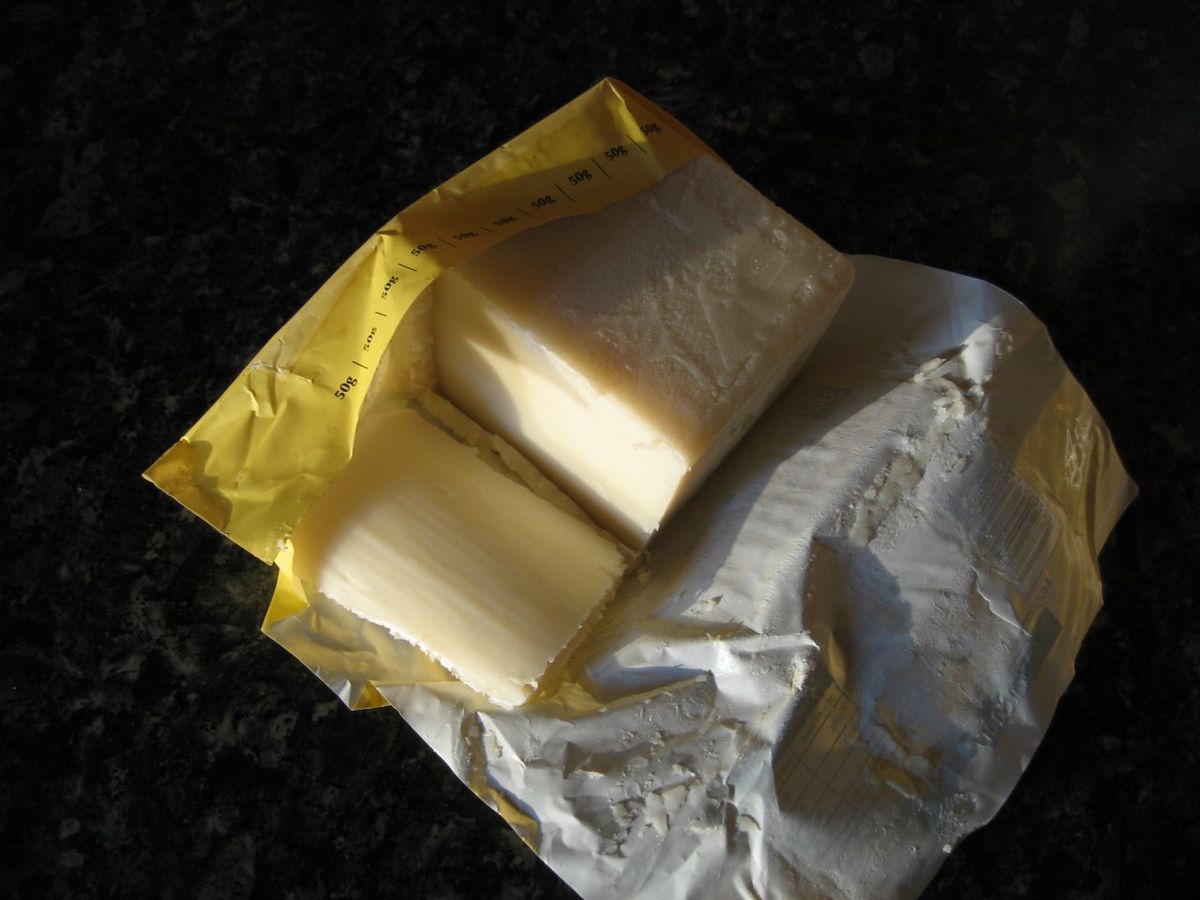The news that Mitchell’s Woolf Fat has dropped tallow as ingredient has many shavers up in arms.
There is a thread growing like wildfire and it has grown to a size that it already risked a few times jumping off the rails by side discussions that distract from the original tallow/non-tallow MWF discussion.
What puzzles me, however, is not the loss of tallow but what MWF has replaced the tallow with.
(So I would ask you please to refrain in this thread from contributions that refer to tallow related subjects.)
to refrain in this thread from contributions that refer to tallow related subjects.)
- Sodium Palmate
- Potassium Palmate
These two are now the first mentioned (meaning: highest proportion) ingredients on the label.
Much has been made about the fact that MWF may want to cater to people (not necessarily vegan) who prefer to buy products where no animal was harmed in their production.
Not only are such concerns legitimate, they may even be applaudable.
But what about raw materials like palm oils and palm kernel oils that are used in the production of Sodium Palmate and Potassium Palmate and which contribute extensively to deforestation, reduction in biodiversity, and have serious social and environmental effects?
Before my retirement from active flying, I flew over Malaysia (25% of 2021 palm oil world production) and Indonesia (59% of 2021 palm oil world production) and have seen what recurring smoke haze, a form of air pollution linked to the burning of rainforest and peat swamp forests to clear land for palm oil plantations, can do to the environment, biodiversity, wildlife, and human health.
Therefore, both in the EU, UK and USA initiatives are now under way to phase out the import of unsustainable palm oil.
So did MWF replace tallow, an ingredient “undesirable” to some, with two ingredients that are made from equally “undesirable” raw materials that in the near future may be banned, restricted, or where the import may require certification as produced under environmentally sustainable methods?
I am having a hard time wrapping my head around this dilemma…
B.
Here some resources:
 chainreactionresearch.com
chainreactionresearch.com

 climate.nasa.gov
climate.nasa.gov
 en.wikipedia.org
en.wikipedia.org

 en.wikipedia.org
en.wikipedia.org

 www.worldwildlife.org
www.worldwildlife.org
There is a thread growing like wildfire and it has grown to a size that it already risked a few times jumping off the rails by side discussions that distract from the original tallow/non-tallow MWF discussion.
What puzzles me, however, is not the loss of tallow but what MWF has replaced the tallow with.
(So I would ask you please
- Sodium Palmate
- Potassium Palmate
These two are now the first mentioned (meaning: highest proportion) ingredients on the label.
Much has been made about the fact that MWF may want to cater to people (not necessarily vegan) who prefer to buy products where no animal was harmed in their production.
Not only are such concerns legitimate, they may even be applaudable.
But what about raw materials like palm oils and palm kernel oils that are used in the production of Sodium Palmate and Potassium Palmate and which contribute extensively to deforestation, reduction in biodiversity, and have serious social and environmental effects?
Before my retirement from active flying, I flew over Malaysia (25% of 2021 palm oil world production) and Indonesia (59% of 2021 palm oil world production) and have seen what recurring smoke haze, a form of air pollution linked to the burning of rainforest and peat swamp forests to clear land for palm oil plantations, can do to the environment, biodiversity, wildlife, and human health.
Therefore, both in the EU, UK and USA initiatives are now under way to phase out the import of unsustainable palm oil.
So did MWF replace tallow, an ingredient “undesirable” to some, with two ingredients that are made from equally “undesirable” raw materials that in the near future may be banned, restricted, or where the import may require certification as produced under environmentally sustainable methods?
I am having a hard time wrapping my head around this dilemma…
B.
Here some resources:
EU Deforestation Regulation: Implications for the Palm Oil Industry and Its Financers - Chain Reaction Research
This report discusses the EU’s regulation on deforestation-free products and how its requirements will affect the palm oil industry, one of the key commodities driving deforestation. The upcoming law, expected to be implemented in 2023, will have implications for palm oil supply chain actors and...
Palm oil: A climate change culprit – Climate Change: Vital Signs of the Planet
Vital Signs of the Planet: Global Climate Change and Global Warming. Current news and data streams about global warming and climate change from NASA.
Social and environmental impact of palm oil - Wikipedia

Palm oil - Wikipedia

What is Palm Oil? Facts About the Palm Oil Industry
As palm oil plantations spread rapidly, deforestation impacts wildlife habitats and human communities. The sustainable production and harvesting of palm oil is imperative.
Last edited:




